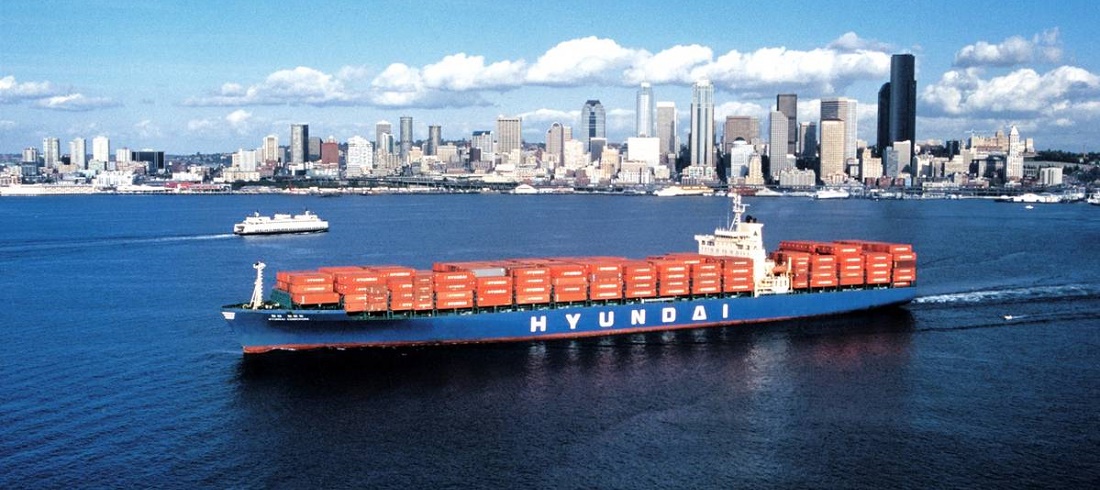
Bloomberg: Shipping is a dirty business. Cleaning it up is lucrative
May, 17, 2024 Posted by Gabriel MalheirosWeek 202420
South Korea’s tech-heavy stock market has found inspiration in an underappreciated sector of the nation’s sprawling economy. HD Hyundai Marine Solution Co. raised more than $500 million in its initial public offering last week and immediately found momentum: The stock doubled in the first few days of trading, taking its market value past $5.8 billion.
It’s not a chipmaker like Samsung Electronics Co. nor an electric-vehicle battery supplier like LG Energy Solution Ltd. HD Hyundai Marine is in the ship-services business, and investors have taken notice. The biggest winner from its meteoric first-week rise is its largest shareholder, South Korea’s Hyundai conglomerate. Private-equity firm KKR & Co. is also counting its profits as it retains a 24% stake after the listing. KKR, HD Hyundai Co. and its slate of new investors are all betting that a global green movement that’s taking hold in industries from server farms to automobiles will prove lucrative to the ocean transport sector.
Regulations implemented by the International Maritime Organization in 2020, called IMO2020, mandate hitting reduction targets for sulfur dioxide emissions to reduce shore-side air pollution. That means using less, and cleaner, fuel. A separate set of goals for greenhouse gas emissions, called the 2023 IMO GHG Strategy, aims to cut carbon-dioxide emission intensity 40% by 2030, including 10% of all fuels being zero-emission.
There’s a few ways these goals can be achieved. The first is to build entirely new ships with cleaner, more efficient engines. That’s happening, and is driving demand at ship builders. Another is to retrofit devices onto existing engines that filter exhaust air, make tweaks that ensure they run more efficiently, or convert them to dual-fuel so that they can use cleaner alternatives like methanol or ammonia.
Each of these choices requires a follow up-service, including checking and replacing components, as well as testing whether a ship is running at maximum efficiency. These ongoing costs will be an increasingly important part of marine-transport operations. It’s also an opportunity for maintenance companies.
HD Hyundai Marine’s business does both: retrofitting and after-market support for ships. It also provides fuel supply for maritime vessels, known as bunker service. Among the deals it has struck is a contract to help Greek operator Thenamaris LNG implement re-liquefaction on at least one of its carriers, a process that returns evaporated gas back to their tanks. This cuts wastage and carbon emissions. The business also installs treatment systems to clean up ballast water, a common cause of ocean pollution, to make ships meet stricter environmental regulations.
These eco-friendly vessels tend to require greater care — the engines are often more complex, and the parts more expensive. That’s why HD Hyundai Marine is so confident that revenue will keep rising. Splintering of supply chains and logistics will also be a driver.
According to the company, HD Hyundai Maritime’s annual turnover includes 50,000 purchase orders and 80,000 deliveries with warehouses in Busan, Rotterdam, Houston, Singapore and soon Dubai. As global manufacturing diversifies away from China, we’ll see more factories open in Vietnam, India, Mexico, and Eastern Europe. Rather than replacing China, supply chains will require ships making calls in more ports and with more frequency.
To keep up, the firm will have to grow. IPO proceeds will go toward expanding shipyards in Southeast Asia, increasing warehouse capacity, and developing technologies for making vessels more green, Chief Executive Officer Lee Ki-dong said in an interview with Bloomberg News last week. Each of these moves will add cost and complexity, but if executed efficiently will also offer competitive advantages.
It’s not alone in the space. Alfa Laval AB of Sweden and Norwegian Kongsberg Gruppen ASA, named as peers in its prospectus, offer a similar collection of services. A handful of Chinese names are also in the mix. But HD Hyundai Marine’s biggest advantage is its parentage, including its affiliation with the world’s biggest shipbuilder HD Hyundai Heavy Industries Co.
Simply acting as Hyundai Heavy’s after-market sales and service business would be enough to give it an advantage over rivals, and it will definitely leverage that relationship. But in the long term, sustainable growth needs to come from building a reputation as a reliable provider of greening services.
There are myriad ways companies like HD Hyundai can mess up. Expanding too fast and overspending on new facilities is a big risk. Failing to keep up with industry trends, or the market itself suffering a downturn are others. Right now, investors don’t seem concerned. Their love for this exciting new category of company may wane when the EV market picks up again, or the smartphone sector finally returns to growth. But, for now, ship maintenance is exciting.
-
Grains
Oct, 11, 2021
0
Mato Grosso farmers face warehouse shortages
-
Trade Regulations
Jun, 14, 2022
0
Brazil and 15 other Latin American countries pressure WTO against protectionist policies
-
Shipping
Jan, 10, 2024
0
Brazilian Minister Unveils Strategic Plan To Address Ports, Waterway Issues
-
Grains
Dec, 04, 2024
0
Grains drive agribusiness outcomes



